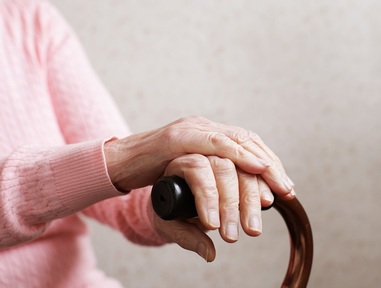Legal win for care workers not paid travel time sees them awarded £10,000 in back pay
Ten home care workers have been awarded an average of £10,000 each in back pay after a tribunal ruled they had been illegally paid less than half the minimum wage, with one of the care workers saying they had been treated like they were "nobody".

The dispute against three care firms commissioned by Haringey Council in North London was over their failure to pay care workers time spent travelling between people’s houses, despite the staff having to get from one home to the next to complete their job.
The government's national living wage is £8.72 an hour for over 25's, £8.20 for people aged between 21 and 24, and £6.45 aged between 18 to 20.
This meant the workers could earn well under half this, despite working for as many as 14 hours a day, according to UNISON.
The claimants, the majority of whom are women, will now receive an average settlement of around £10,000 each after an employment tribunal ruling.
’Care workers aren’t valued. We’ve been treated like we were nobody’
One care worker who wishes to remain anonymous worked long days and travelled by bus or walked to see the people she was looking after.
She said: “People think the job just involves giving out tablets or a cup of tea. But you have to be a doctor, nurse, and social worker. It’s a huge responsibility – you could be looking after someone in pain or distress. Care workers aren’t valued. We’ve been treated like we were nobody.
“That’s why this result is so important, not just for us but others like us. It’s been daunting bringing this case. But I believe in justice and we supported one another to the end.”
The care companies involved – Kaamil Education Limited, Diligent Care Services Limited, and Premier Carewaiting Limited – have been ordered to pay more than £100,000 in backdated earnings. This is the equivalent of nine months' work and annual leave.
The judgment said travelling and waiting time of up to 60 minutes between appointments should be treated as working time. This will now provide other home care workers with a clear method of calculating how much they are owed, says UNISON.
The care workers had been hired on zero-hours contracts to look after the vulnerable and disabled in their homes.
'It’s time the care staff were respected instead of being underpaid and undervalued'
UNISON general secretary Dave Prentis said: “This is a major victory for these dedicated workers who dared take on their employers. Their long struggle is nothing short of heroic.
“It’s time the skills and experience of care staff were respected instead of them being underpaid and undervalued. The pandemic has proven just how vital they are in looking after the most vulnerable in society and keeping the care system running.
“These are the very same care staff who were applauded during the lockdown. They shouldn’t have to work in a system that breeds such awful treatment. The union says a national care service would help prevent these illegal pay practices by ensuring workers were paid a fair wage.
“This ruling sends a message to other care bosses that it’s completely unacceptable to pay staff illegal poverty wages,” says Mr Prentis. “The government too must get tougher with employers so there’s an end to these law-breaking practices.”
UNISON also stated, those denied their full wages could now bring cases against their care employers to reclaim what they are owed, and other home care workers on similar pay rates will now feel empowered to challenge any employers who fail to pay them correctly.
United Kingdom Homecare Association (UKHCA) policy director, Colin Angel, said: “Although the judgement, in this case, is not binding on other cases before the tribunals, it could change the interpretation of the law. The judgement is therefore potentially significant for homecare providers, councils, the NHS and for people who purchase their own care privately or use a direct payment.
“UKHCA has consistently highlighted the implications of the way that home care services are purchased by councils and the NHS, usually at extremely low hourly rates, and often calculated solely according to the number of minutes of care delivered.
"This judgement adds weight to the need to correct the unacceptable purchasing methods used in state-funded home care.”
Latest News
 29-Jul-24
Dementia Bus gives carehome.co.uk staff insight into life with dementia
29-Jul-24
Dementia Bus gives carehome.co.uk staff insight into life with dementia
 27-Jul-23
UK's top home care agencies in 2023 revealed
27-Jul-23
UK's top home care agencies in 2023 revealed
 30-Nov-22
A quarter of older people keep their falls secret from family
30-Nov-22
A quarter of older people keep their falls secret from family
 29-Nov-22
'Covid-19 has not gone away' say terminally ill
29-Nov-22
'Covid-19 has not gone away' say terminally ill
 28-Nov-22
IT consultant who received poor care opens 'compassionate' home care business
28-Nov-22
IT consultant who received poor care opens 'compassionate' home care business